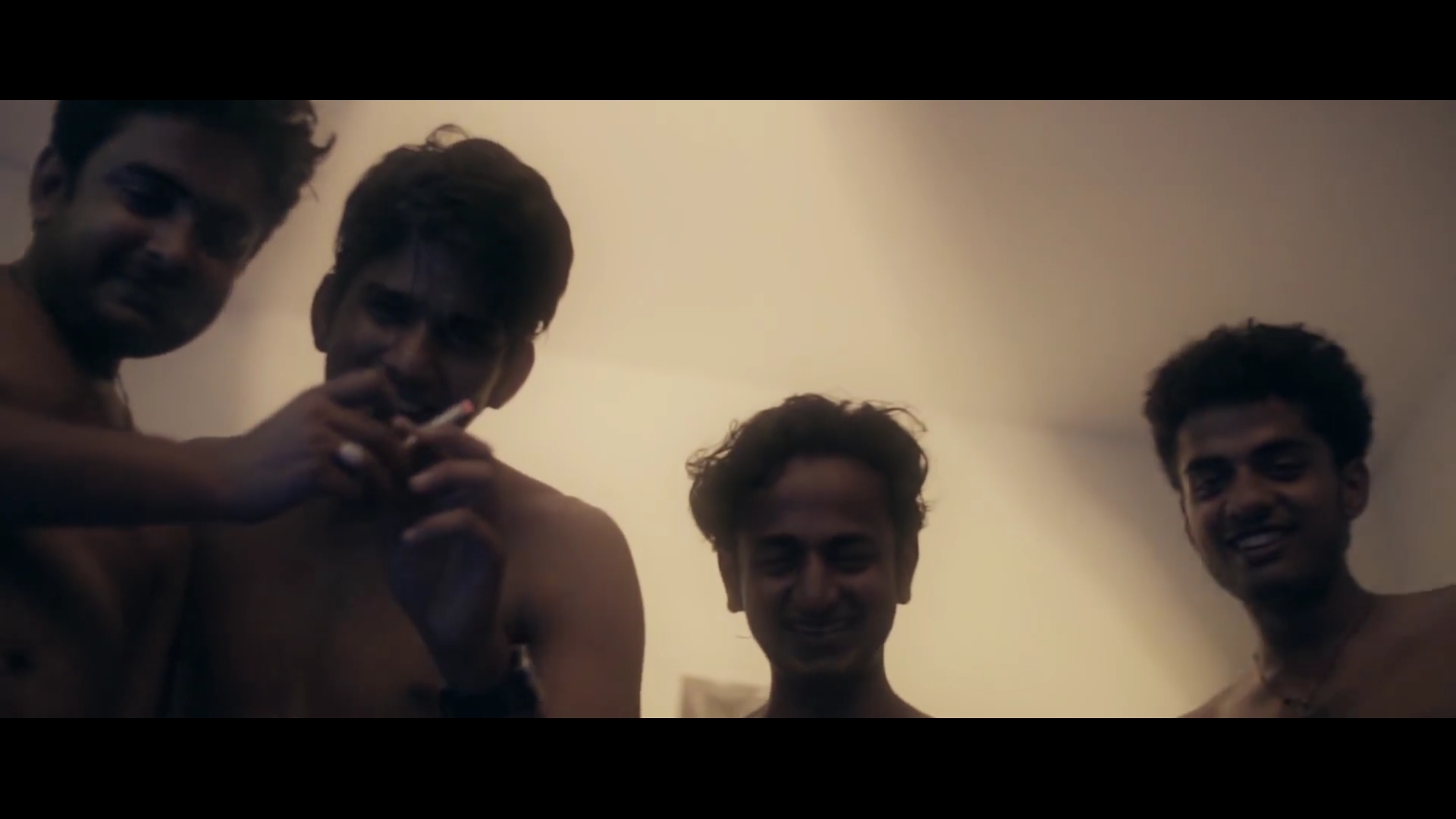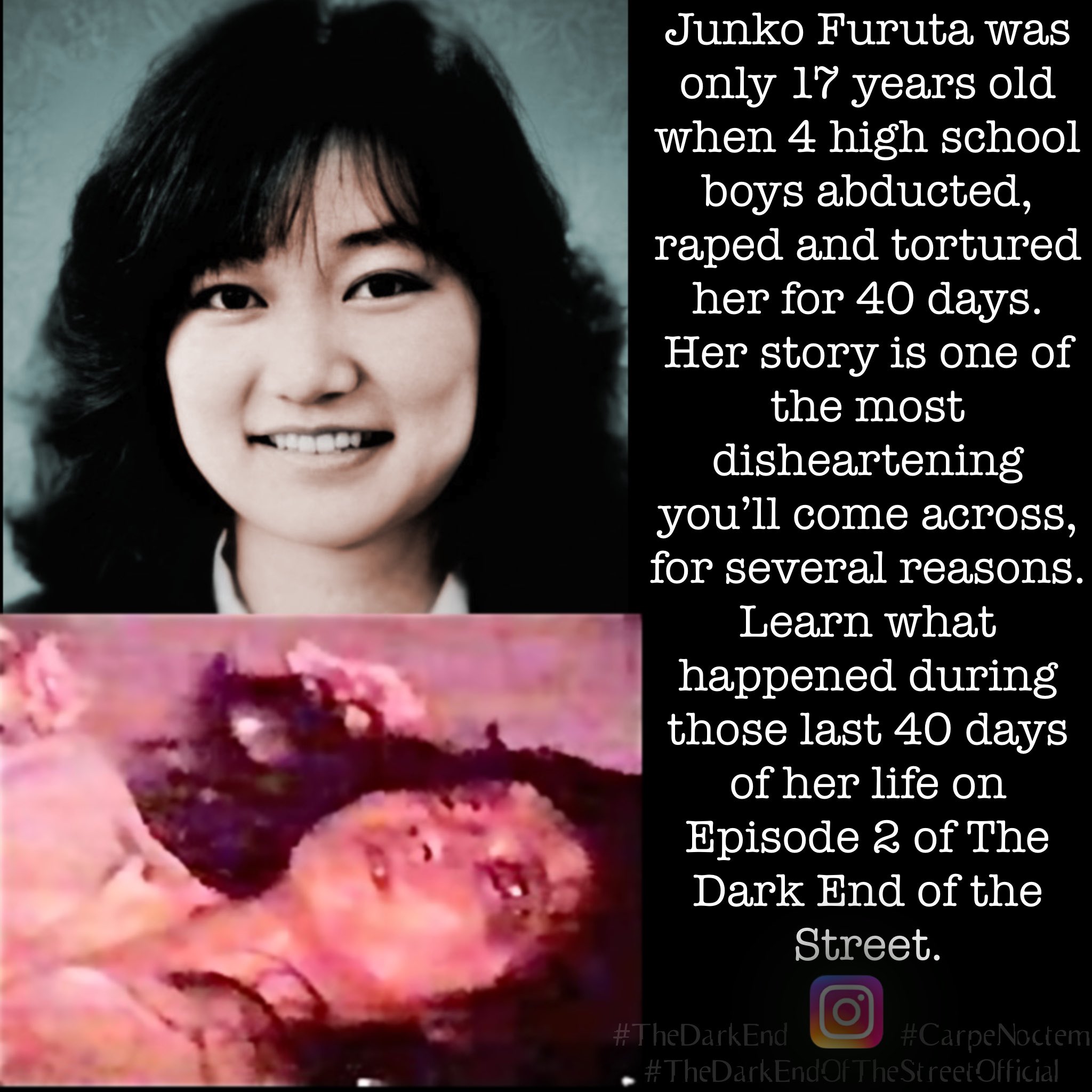Junko Furuta's story remains one of the darkest and most haunting narratives in modern history. The harrowing events surrounding her abduction, captivity, and eventual death have left an indelible mark on society’s consciousness. This tragic tale not only exposes the depths of human cruelty but also raises critical questions about justice, accountability, and societal responsibility. As we delve into this grim chapter, it is essential to approach the subject with sensitivity, ensuring that the memory of Junko Furuta serves as a poignant reminder of the need for vigilance and compassion in our communities.
The case of Junko Furuta, a 14-year-old girl from Japan, shocked the nation in 1988 when details of her brutal captivity and murder emerged. Her ordeal unfolded over a period of 44 days, during which she endured unimaginable suffering at the hands of her captors. The chilling nature of the crime, coupled with the subsequent legal proceedings, has sparked widespread debate and reflection on the justice system and its ability to address such heinous acts.
While the passage of time has somewhat dimmed the immediacy of this tragedy, the story of Junko Furuta continues to resonate deeply with those who seek to understand the dark corners of human behavior. By exploring the events, the individuals involved, and the societal implications, we can gain valuable insights into how such tragedies might be prevented in the future. This article aims to shed light on these critical aspects while respecting the dignity of the victim and her family.
Read also:4 Uk A Comprehensive Guide To Understanding The United Kingdoms Four Nations
Table of Contents
- Biography of Junko Furuta
- What Happened in the Junko Furuta Case?
- How Were the Legal Proceedings Handled?
- What Impact Did the Junko Furuta Case Have on Society?
- What Lessons Can We Learn from the Junko Furuta Case?
- How Is Junko Furuta Remembered Today?
- Why Do We Need to Talk About Junko Furuta?
- Is Justice Truly Served in Cases Like Junko Furuta's?
- How Can We Prevent Similar Tragedies in the Future?
- Conclusion: Reflecting on the Legacy of Junko Furuta
Biography of Junko Furuta
Junko Furuta was born on September 13, 1973, in Tokyo, Japan. She grew up in a loving family, excelling in her studies and maintaining a close-knit circle of friends. Her life was tragically cut short at the age of 14 when she became the victim of a horrific crime that shocked the nation. Below is a summary of her personal details:
| Name | Junko Furuta |
|---|---|
| Date of Birth | September 13, 1973 |
| Place of Birth | Tokyo, Japan |
| Age at the Time of Incident | 14 years |
| Occupation | Student |
What Happened in the Junko Furuta Case?
The events surrounding Junko Furuta's abduction began on November 25, 1988, when she was lured into a trap by four teenage boys. Initially, the captors claimed they intended to ransom her, but their plans quickly devolved into a prolonged and brutal captivity. Over the span of 44 days, Junko was subjected to relentless physical and psychological abuse, ultimately leading to her death.
Despite the gravity of the situation, the perpetrators initially faced lenient sentences due to their age, sparking outrage among the public and prompting calls for reform in the juvenile justice system. The case remains a stark reminder of the vulnerabilities faced by young individuals and the urgent need for comprehensive measures to protect them.
How Were the Legal Proceedings Handled?
The legal proceedings in the Junko Furuta case were marred by controversy, primarily due to the leniency shown towards the perpetrators. Three of the four individuals involved were minors at the time of the crime, which significantly influenced the outcome of their trials. While one of the suspects was sentenced to life imprisonment, the others received shorter sentences, reflecting the limitations of the juvenile justice system in addressing such severe offenses.
What Impact Did the Junko Furuta Case Have on Society?
The impact of the Junko Furuta case extended far beyond the courtroom, prompting widespread discussions about the justice system, societal values, and the protection of vulnerable individuals. Public outrage over the lenient sentences handed down to the perpetrators led to significant reforms in Japan’s juvenile justice system, emphasizing the need for accountability and deterrence.
What Lessons Can We Learn from the Junko Furuta Case?
One of the most critical lessons derived from the Junko Furuta case is the importance of education and awareness in preventing similar tragedies. By fostering a culture of empathy, vigilance, and respect, communities can play a pivotal role in safeguarding their members. Additionally, the case highlights the necessity of robust legal frameworks that adequately address the complexities of juvenile crime.
Read also:Antonia Mackinzie A Comprehensive Guide To Her Life Career And Achievements
How Is Junko Furuta Remembered Today?
Decades after her tragic death, Junko Furuta continues to be remembered as a symbol of resilience and the enduring fight for justice. Memorials and educational initiatives have been established in her honor, serving as reminders of the importance of protecting the innocent and holding perpetrators accountable. Her legacy serves as a powerful call to action for future generations.
Why Do We Need to Talk About Junko Furuta?
Discussing the case of Junko Furuta is not merely about revisiting a tragic event but also about learning from it. By engaging in open dialogue, society can better understand the root causes of such crimes and develop strategies to prevent them. This conversation is essential for fostering a safer and more compassionate world.
Is Justice Truly Served in Cases Like Junko Furuta's?
Questions about the fairness and effectiveness of the justice system are central to understanding the aftermath of cases like Junko Furuta's. While the legal system seeks to balance rehabilitation and retribution, the emotional toll on victims' families and the broader community often demands more than what the law can provide. Achieving true justice in such cases remains a complex and ongoing challenge.
How Can We Prevent Similar Tragedies in the Future?
Preventing future tragedies requires a multifaceted approach involving education, community engagement, and legislative reform. By addressing the underlying issues that contribute to such crimes, society can create a safer environment for all its members. Initiatives aimed at fostering empathy, promoting mental health awareness, and strengthening legal protections are crucial steps in this direction.
Conclusion: Reflecting on the Legacy of Junko Furuta
The legacy of Junko Furuta serves as both a warning and a call to action. Her story reminds us of the fragility of life and the importance of vigilance in protecting the vulnerable. By learning from this tragic chapter in history, we can work towards a future where such atrocities are less likely to occur. As we reflect on the events surrounding Junko Furuta's life and death, let us commit to creating a world where justice, compassion, and safety are paramount.
In conclusion, the case of Junko Furuta underscores the need for ongoing dialogue and action to prevent similar tragedies. By honoring her memory and striving for a more just and secure society, we can ensure that her legacy continues to inspire positive change.


